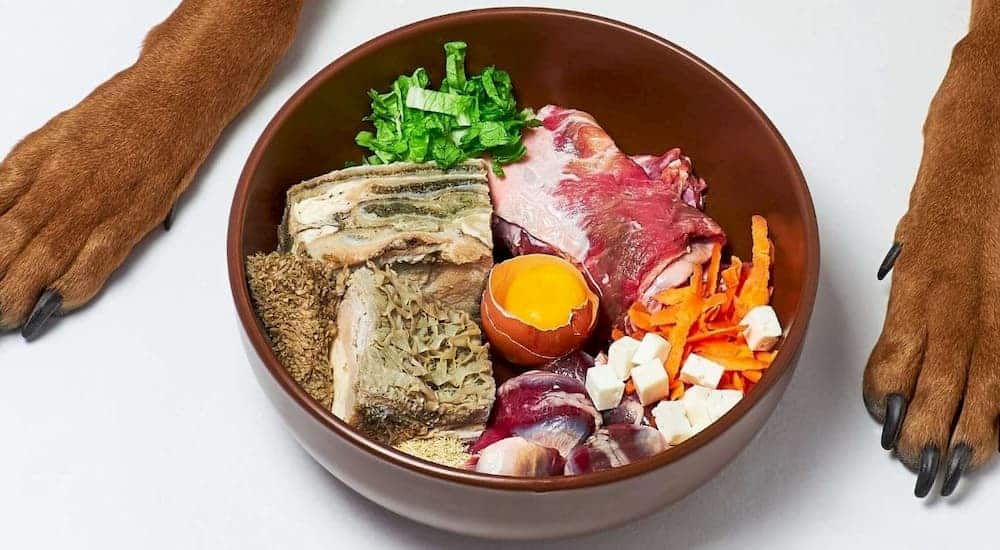In recent years, the concept of feeding raw food to dogs has gained significant traction. Advocates of raw dog food claim it aligns with a dog’s natural diet, providing a plethora of health benefits. However, the trend raises questions and concerns among pet owners. In this article, we explore the raw truth about raw food, examining its potential advantages, risks, and whether it's the right choice for your beloved furry friend.
Understanding Raw Food for Dogs
Raw dog food, often referred to as a “BARF” diet (Biologically Appropriate Raw Food), consists of uncooked, natural ingredients such as meat, bones, organs, and vegetables. Proponents argue that this diet mirrors the diet of wild canines, emphasizing a natural and holistic approach to canine nutrition.
The BARF Diet Philosophy: A Mirror of Wild Canine Diets
The philosophy behind the BARF diet is grounded in the belief that the diet of wild canines, such as wolves and foxes, serves as a natural blueprint for the nutritional needs of domestic dogs. Wild canines are opportunistic carnivores, consuming a diet rich in raw meat, bones, and plant matter found in their prey's stomach. Advocates of the raw food diet argue that domestic dogs, despite their domestication, retain these natural dietary inclinations.
The Foundation: Natural and Uncooked Ingredients
At its core, raw dog food comprises uncooked, natural ingredients that dogs would consume in the wild. These ingredients typically include raw meat, bones, organs, and vegetables. Proponents of the raw food diet argue that feeding dogs these unprocessed and biologically appropriate foods can offer a range of health benefits. By avoiding the processing methods involved in commercial raw pet foods, dog food enthusiasts believe they are providing a diet that aligns more closely with the evolutionary needs of dogs.
Potential Benefits of Raw Dog Food
Advocates of raw food tout several potential benefits, including improved coat health, increased energy levels, and better dental hygiene. Raw diets are typically rich in natural enzymes and nutrients, which some believe can boost a dog's immune system, leading to overall better health. Additionally, proponents claim that dogs on raw diets experience reduced allergies and improved digestion due to the absence of processed ingredients.
Addressing Concerns and Risks
While raw dog food has its proponents, there are concerns and risks associated with this diet. One significant worry is the potential for bacterial contamination, including Salmonella and E. coli, which can pose health risks to both dogs and humans. Another concern is the imbalance of essential nutrients if the diet is not properly formulated. Dogs may suffer from nutritional deficiencies, especially if the diet lacks proper variety.
Individualized Nutritional Needs
One crucial aspect to consider when contemplating a raw diet is the individualized nutritional needs of your canine companion. Dogs have different dietary requirements based on factors such as breed, age, activity level, and health condition. Consulting with a veterinarian or a canine nutritionist is essential to create a balanced raw diet tailored to your dog's unique needs.
Making an Informed Decision
Deciding whether raw food is suitable for your pet requires careful consideration. It's essential to weigh the potential benefits against the risks and consult with professionals who can provide expert guidance. If you choose to go the raw route, it's crucial to source high-quality ingredients, handle them safely, and ensure that the diet is nutritionally balanced to meet your dog's specific requirements.
Conclusion – Navigating the Raw Food Journey
In conclusion, the decision to feed your canine companion a raw diet is a significant choice that should be made after thorough research and consultation with experts. While raw dog food may offer potential benefits, it is not without its risks and challenges. As a responsible pet owner, your priority should be your dog's well-being.
By understanding the raw truth about raw food, considering your dog's individual nutritional needs, and seeking professional advice, you can navigate the raw food journey with confidence. Whether you opt for raw, traditional kibble, or a mix of both, the key is to provide your beloved pet with a balanced, nutritious diet that promotes their overall health and happiness. Making informed decisions about your dog's diet ensures they thrive and live a long, healthy life as your cherished companion.





